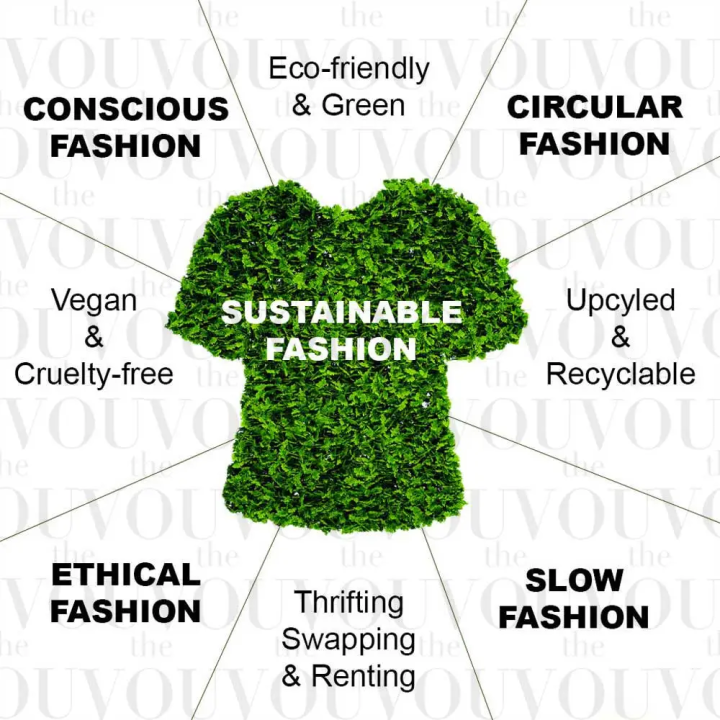Keep Ahead of the Curve by Checking Out Innovative Fashion Fads
In a sector as dynamic as style, staying in advance includes even more than simply following present fads-- it demands an exploration of advancement. The convergence of innovation and style advertises a new age of customer involvement.

Accepting Smart Textiles
In current years, the apparel industry has witnessed a transformative change with the integration of clever textiles, an advanced technology that blends modern technology with material. This evolution represents not just a combination of aesthetics and functionality but additionally a significant leap towards sustainability and customization in style. Smart fabrics, additionally understood as e-textiles, embed advanced electronics such as sensors and conductive strings within the material, enabling garments to engage with the atmosphere or the wearer.
These textiles are made to keep an eye on physical criteria, such as heart rate or body temperature, giving real-time health analytics. Beyond health applications, clever fabrics are additionally being used for adaptive apparel, which can transform color or pattern in response to ecological stimuli, thus providing a vibrant fashion experience.
Moreover, the development of energy-harvesting fabrics that create power from movement or sunshine is leading the way for self-sufficient wearable modern technology. This innovation is interesting ecologically mindful consumers and developers intending to minimize the ecological footprint of style. As r & d in this area breakthrough, clever textiles are expected to end up being increasingly prevalent, improving the landscape of modern-day fashion with their multifunctional capacities.
The Rise of 3D Printing
Changing the production landscape, 3D printing has actually become a game-changer in the style industry. This cutting-edge modern technology has made it possible for developers to press the boundaries of creative thinking, producing detailed and tailored garments that were previously unimaginable. By leveraging electronic style and additive manufacturing, 3D printing promotes the development of complicated geometries and patterns, enabling designers to experiment with new textures and structures.
A notable benefit of 3D printing in style is its ability to create on-demand, lessening waste and decreasing supply needs. This performance not just optimizes production processes however additionally allows for quick prototyping, allowing developers to bring their visions to life in a shorter timeframe. Moreover, 3D printing supports customization somewhat unequaled by standard techniques, offering one-of-a-kind layouts and customized fits tailored to specific customer choices.
The increase of 3D printing has actually also equalized style, making it obtainable to emerging developers that can now produce high-quality pieces without significant financial investment in conventional manufacturing framework. As modern technology remains to breakthrough, the style industry is positioned to harness the full possibility of 3D printing, exploring new materials and strategies that will certainly redefine exactly how style is conceived and generated.
Lasting Fashion Innovations
As the fashion business faces journalism demand for ecological duty, sustainable fashion innovations have arised at the center of transformative modification. The expanding understanding of ecological effect has actually sustained a change towards more eco-conscious techniques and products. Developers and brands are now prioritizing sustainability, integrating approaches that minimize waste and minimize carbon footprints.
One significant advancement is the surge of circular fashion, which stresses recycling and upcycling to extend the lifecycle of garments. This method not only decreases waste yet likewise urges customers to adopt an extra conscious strategy to clothing intake. Additionally, making use of sustainable products, such as organic cotton, hemp, and recycled polyester, has actually acquired traction. These products call for much less water and energy during manufacturing, dramatically reducing ecological influence.
An additional development lies in the adoption of ingenious dyeing strategies that make use of all-natural dyes or waterless procedures, thus decreasing the substantial amounts of water and chemicals typically made use of in fabric dyeing. Furthermore, improvements in biotechnology have actually brought about the creation of lab-grown natural leather and textiles, supplying environmentally friendly and cruelty-free options to conventional materials. With these pioneering initiatives, the apparel industry is making meaningful strides towards a much more sustainable future.

Tech-Integrated Clothing
Tech-integrated garments stands for a cutting-edge combination of style and innovation, improving how people connect with their apparel. This ingenious domain name is noted by the inclusion of wise textiles and embedded electronic components, boosting both capability and aesthetic charm. From fitness trackers installed in sportswear to heated coats controlled through smartphone apps, tech-integrated apparel supplies customers unmatched ease and adaptability.
Pioneering brands are driving this fad, concentrating on producing garments that reply to ecological stimuli or individual commands. As an example, some garments can change shade or pattern in feedback to temperature changes, while others integrate biometric sensing units to monitor health metrics like heart price or stress and anxiety levels. The smooth combination of technology right into textiles additionally reaches ecological sustainability, with initiatives to develop self-cleaning materials or garments that get used to weather, thus minimizing the requirement for multiple layers.
In addition, the development of wearable modern technology is not simply limited to apparel however includes accessories like watches and glasses, further widening the range of tech-integrated fashion. As the industry remains to introduce, the possibility for personalization and customization in clothing expands, supplying consumers special, tech-enhanced style experiences that satisfy their private needs and preferences.
Future of Virtual Style
Recently, the future of digital style has emerged as a transformative force within the sector, leveraging advancements in digital technology to link redefine just how style is produced, experienced, and eaten. By incorporating increased reality (AR), virtual fact discover this info here (VIRTUAL REALITY), and 3D layout tools, developers can now craft interactive and immersive experiences that transcend traditional fashion borders. Digital style permits the development of garments that exist solely in digital environments, using countless opportunities for innovation without the constraints of physical manufacturing.
This digital change not only presents possibilities for innovative expression but additionally addresses sustainability problems integral in typical style methods. Cape Town Sustainable Fashion. By removing the demand for physical resources, virtual fashion reduces waste and minimizes carbon impacts. Moreover, the increase of virtual style aligns with the boosting consumer demand for personalized and one-of-a-kind experiences, as online garments can be customized and customized to specific choices effortlessly

Conclusion
The apparel industry's future lies in the integration of lasting practices and ingenious innovations - Cape Town Sustainable Fashion. Smart textiles and tech-integrated apparel are enhancing performance, while 3D printing offers opportunities for modification and waste decrease. Lasting style, via round techniques and green products, demonstrates a dedication to ecological stewardship. Moreover, online fashion is positioned to redefine consumer interactions. Adjusting to these patterns is necessary for brands seeking to stay competitive and pertinent in you can find out more this quickly evolving landscape.
In recent years, the fashion market has witnessed a transformative change with the combination of smart textiles, a sophisticated technology that mixes innovation with material.As the style industry grapples with the pressing demand for ecological obligation, sustainable fashion innovations have actually emerged at the center of transformative adjustment.In current years, the future of online style has emerged as a transformative force within the sector, leveraging improvements in electronic innovation to redefine how style is created, experienced, and eaten. The increase of digital style straightens with the increasing consumer demand for tailored and one-of-a-kind experiences, as digital garments can be tailored and customized to specific choices with convenience.
The style market's future lies in the combination of cutting-edge modern technologies and lasting methods.